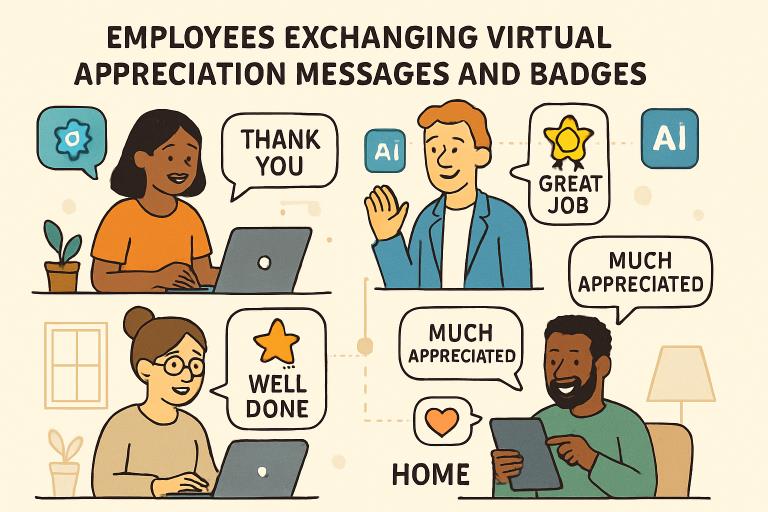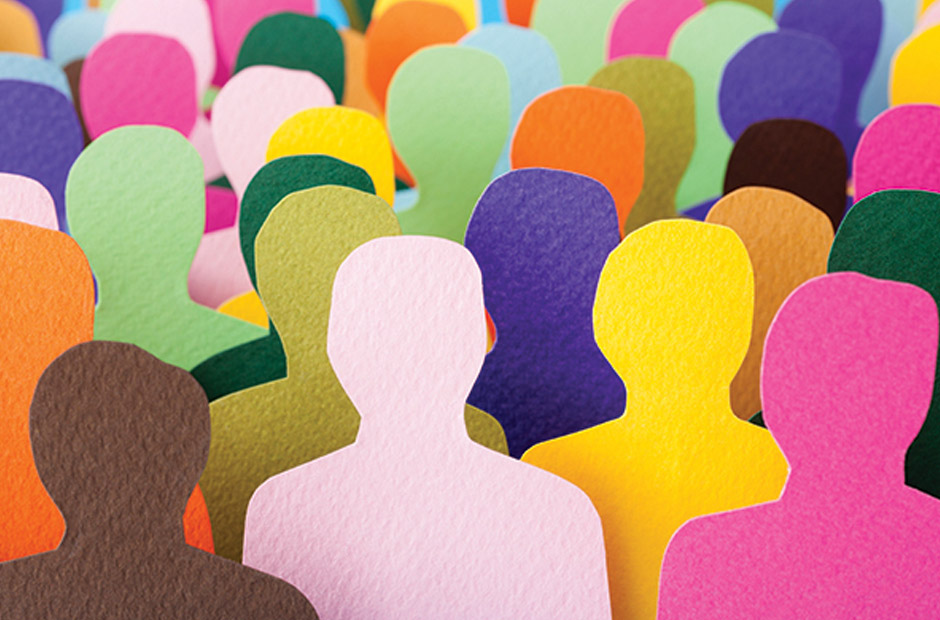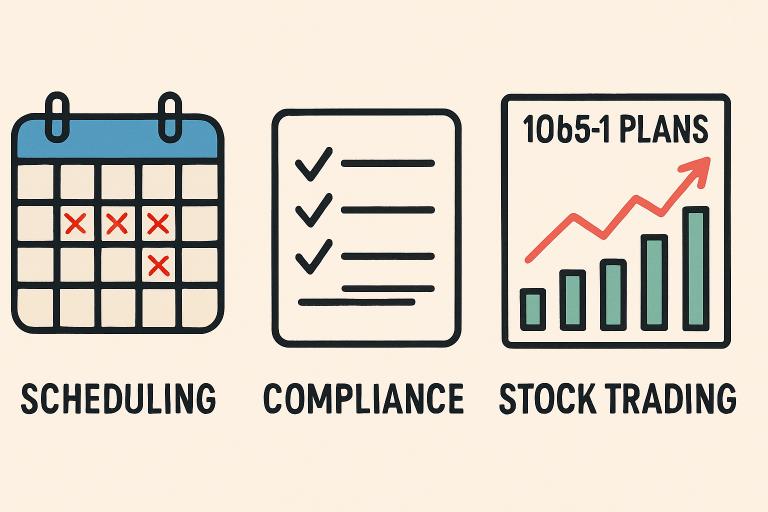Now Reading: Innovative Strategies for Effective Employee Recognition Today
-
01
Innovative Strategies for Effective Employee Recognition Today
Innovative Strategies for Effective Employee Recognition Today

Key Takeaways
- Modern recognition programs are integrating advanced technologies, such as AI, to personalize and streamline the recognition process.
- Organizations are emphasizing well-being and professional development as integral components of employee recognition.
- Peer-to-peer recognition and micro-moments of appreciation are gaining traction, fostering a culture of continuous acknowledgment.
Employee recognition has shifted from traditional annual awards ceremonies to a dynamic, real-time, and inclusive process. Organizations today increasingly understand that a strategic approach to employee acknowledgment can help unlock higher engagement, stronger loyalty, and greater productivity. A growing number of innovative companies are combining technology with thoughtful gestures to create sophisticated, meaningful programs that are responsive to employees’ needs. As more businesses strive for excellence, tools like corporate awards are being redeployed within diverse recognition strategies, making appreciation more personalized and accessible.
Modern recognition programs are expanding beyond one-size-fits-all rewards, leveraging analytics and interactive platforms to make every employee feel noticed. By customizing rewards and integrating recognition into daily workflows, organizations foster cultures of appreciation that extend throughout the year and touch every department. In today’s fast-paced environment, where hybrid and remote work are the norm, the ability to offer meaningful, timely, and tailored recognition is a key differentiator for successful employers.
Human resources leaders are also tying recognition to deeper values, such as well-being, belonging, and growth. Employees are increasingly prioritizing organizations that not only celebrate achievements but also offer avenues for personal and professional development. As work arrangements become more flexible and decentralized, thoughtful recognition strategies can unify teams and reinforce a shared sense of purpose.
With technology playing a significant role, employee recognition programs can now be delivered with greater immediacy and relevance. AI-driven platforms can offer data-backed recommendations, while mobile apps ensure acknowledgment is never delayed—even for distributed teams.
Integrating AI into Recognition Programs
Artificial Intelligence (AI) is transforming employee recognition by automating and personalizing the acknowledgment process. AI-powered recognition platforms analyze large datasets of employee performance and engagement data, providing managers with timely prompts or suggestions for recognizing individual achievements. For example, these platforms might flag a project milestone or a peer-nominated contribution, ensuring recognition is both swift and specific. This boosts morale while minimizing bias, as AI adds a layer of objectivity and helps organizations avoid overlooking less-visible team members.
The use of AI also supports ongoing innovation by surfacing insights into what types of rewards and recognition are most valued across various teams and demographics. This data enables HR professionals to iterate and improve the impact of their programs, thereby strengthening employee retention and motivation. Businesses like those featured in Forbes Advisor reports are already reaping the benefits of these advances.
Emphasizing Well-Being in Recognition
More companies are incorporating well-being incentives into their recognition strategies, recognizing that wellness and engagement are closely linked. Common rewards today include wellness subscriptions, extra paid time off, mental health days, and flexibility with work hours. By linking recognition efforts to holistic health, organizations communicate a genuine investment in the long-term happiness and resilience of their teams.
These initiatives help to combat burnout and foster a culture of trust. Employees who feel seen and supported in both their personal and professional lives are not only more satisfied but also more likely to become advocates for the company’s brand and mission.
Personalized Recognition Strategies
The era of generic rewards is drawing to a close as organizations adapt to a workforce that values personal relevance and choice. Hyper-personalized recognition can include tailored learning paths, unique gift experiences, or even opportunities for personal growth aligned with individual interests. This heightened focus on customization is helping employees feel truly understood and appreciated for their unique contributions.
Leaders are increasingly surveying employees or using analytics tools to gather feedback on what types of rewards are most meaningful, making every act of recognition an investment in authenticity and connection. As highlighted by Robert Half, genuinely personalized rewards are among the top drivers of engagement in high-performing organizations.
Peer-to-Peer Recognition
An effective recognition culture promotes acknowledgment from every angle, not just from top leadership. Peer-to-peer recognition empowers all employees to celebrate one another’s successes, building a climate of collaboration and mutual respect. These practices help democratize recognition, reducing hierarchy and enhancing team cohesion.
Peer-driven platforms typically allow users to nominate co-workers for instant shout-outs, which can then be shared company-wide. This not only increases the frequency and authenticity of recognition but also surfaces contributions that might otherwise go unnoticed by managers.
Micro-Moments of Appreciation
Micro-moments—small, consistent gestures of acknowledgment—are becoming the heartbeat of exemplary recognition programs. Whether it’s a quick thank-you message, a public compliment in a meeting, or a simple virtual badge, these little interactions compound to create lasting morale and positivity. By integrating micro-moments into daily routines, organizations ensure recognition is ongoing, rather than reserved for scheduled reviews or annual events.
Recognition Tied to Learning and Development
Contemporary recognition strategies increasingly celebrate learning and development as critical achievements. Employees who complete new certifications, pursue additional education, or acquire new skills are often recognized through internal communications, special awards, or bonuses. This proactive encouragement reinforces the organization’s commitment to continuous improvement while motivating staff to expand their capabilities.
Tying recognition to educational milestones also helps align individual ambitions with organizational goals—ensuring that professional growth is both noticed and celebrated.
Leveraging Technology for Accessible Recognition
The most effective recognition programs today are those that are easily accessible across multiple platforms. From mobile apps to secure web portals, modern systems allow both in-office and remote workers to participate equally. Key features, such as multi-language support, integration with communication tools, and user-friendly interfaces, make workplace recognition inclusive and seamless.
As organizations continue to adapt to new modes of work, technology-driven recognition tools will remain essential for ensuring a sense of belonging and shared purpose, regardless of where employees are based.
Conclusion
Employee recognition is evolving into a multifaceted, tech-enabled process that values every individual’s unique strengths and contributions. By embracing AI, prioritizing employee well-being, and cultivating a peer-driven culture, companies can unlock new levels of employee engagement and satisfaction. Innovative, accessible programs are not just a perk—they’re a foundational strategy for building resilient, high-performing teams today and in the future.





















